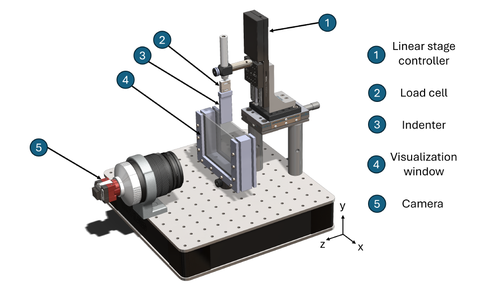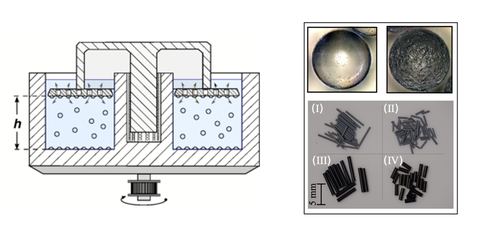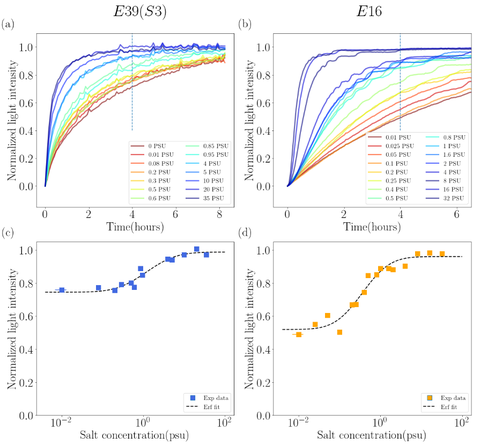Research
Shear Band Nucleation in granular Systems
Our lab is actively working on the development of an experimental device designed to trigger and visualize shear bands in dry granular systems. This device allows us to investigate the formation and evolution of localized deformation zones, known as shear bands, which are critical to understanding how granular materials respond to stress. By incorporating controlled particle interactions, we aim to explore how factors such as particle cohesion, friction, and shape influence shear band formation. This project is essential for advancing our knowledge of particle-scale dynamics and interaction effects in granular materials, with applications in natural disaster modeling and industrial processing.

Versuchsaufbau zur Nukleation von Scherbändern
Rheology of Granular Materials
Granular rheology, particularly through pressure-imposed measurements, provides a powerful framework for analyzing the flow regimes that govern natural phenomena such as debris flows, landslides, and avalanches, as well as essential industrial processes involving granular materials and powders. In our laboratory, we approach granular rheology with a dual focus on friction and viscosity. This dual framework characterizes granular suspensions using an effective friction coefficient and an effective granular viscosity, both dependent on the material’s flowable packing fraction. Our experimental approach accounts for multiple interparticle interactions—among which friction, cohesion, and particle shape play central roles—in order to capture the complex behavior of granular flows under various conditions.

Sketch of experimental setup. Pressure-imposed rheometer
Flocculation under Shear and Settling Process
As part of a collaborative project with the Norwegian Public Roads Administration (NPRA), we investigate the settling velocity of natural debris fine particles as influenced by varying salt concentrations in water. The study systematically explores the flocculation process and floc stability, aligning our research with the environmental conditions observed in the field.

Settling behaviour for natural sediments
